College of College of Graduate Studies
Day two of CNA Research Symposium focuses on aviation, aeronautics and strategic funding
The second day of the university’s Catalytic Niche Area (CNA) Research Symposium, comprising top national and international experts, continued to discuss and develop ideas for the conceptualisation of highly specialised fields of research on 15 August 2024 at the Muckleneuk Campus, Tshwane. The first session focused on developments in aviation and aeronautics, and seed funding opportunities, among others.
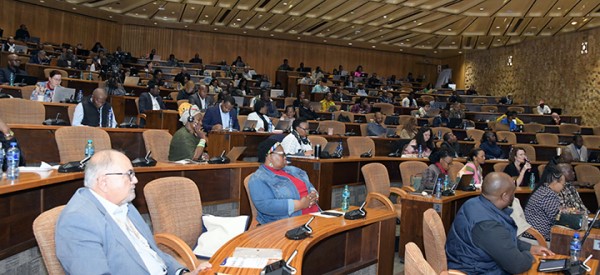
ATNS in brief
In her keynote remarks, Khanyisile Cele, Chief of Strategy, Research Development and Innovation, Air Traffic Navigation Service (ATNS), expressed elation at the university’s establishment of the CNAs, one of which, she said, focuses on ATNS’s areas of expertise, which are aviation and aeronautical studies. In addition, Cele briefly described ATNS, stating that it is a state-owned company under the Department of Transport, with the sole mandate or providing air traffic control and management solutions for the country. In addition, it manages 10% of the world’s air space.
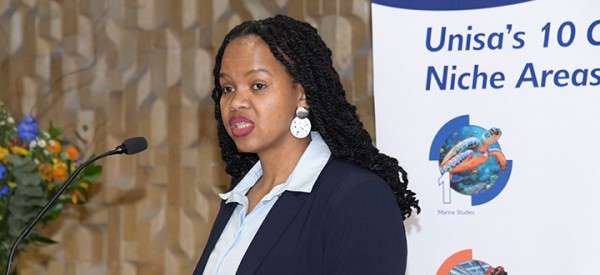
Khanyisile Cele, Chief of Strategy, Research Development and Innovation, Air Traffic Navigation Service
Aviation central to international trade and economy development
Cele stressed that the aviation industry is a cornerstone of global connectivity, enabling trade, tourism and cultural exchange. She further elaborated: "According to the European Association for Transactional Analysis, in 2023, the aviation industry facilitates a connection between 21 006 unique city pairs, generating a total trade of $8 billion. Forecasts indicate a further expansion of a further 22 000 city pairs in 2024 with an estimate trade value of $8 billion. These figures underscore the aviation industry critical role in global trade and economic activity."
"This industry," she added, "is more than just a means of transport; it is a powerful driver of economic growth, social development and global connectivity. It contributes 3.5% to the worldwide gross domestic product, which translates into $2.7 trillion, supporting 65 million jobs."
Cele affirmed that aviation is an enabler of economic growth in South Africa, linking the country’s trade output to the world. "Like many industries," she continued, "aviation has challenges, such as geopolitics, environmental concerns, and the need for enhanced safety and efficiency. This field is a dynamic environment which demands continuous innovation. The industry must evolve to meet new demands, embrace new technologies and new skills, and, in addition, ensure sustainability that outlives us."
Strategic importance of aviation in Africa
Cele outlined that Africa is a continent with vast potential, with a young, growing and educated population, abundant natural resources and emerging markets coupled with relative political stability. "Therefore," she said, "the opportunities for growth and development are immense. The aviation industry plays a crucial role in unlocking this potential by connecting people, markets and ideas, especially with the recently signed Africa Continental Free Trade Area agreement which presents abundant opportunities for Africa to bring about 30 million people out of extreme poverty and to raise the income of about 68 million others who live on less than $5.50 per day."
Concluding her message, Cele suggested a memorandum of understanding between ATNS and the university, adding: "There are many areas of potential collaboration between our entities. ATNS is a globally recognised aviation training academy, which provides air traffic services, engineering, aviation and safety-related courses throughout the continent and the Middle East. If we combine our strengths, we can positively impact the aviation space."
CNA seed funding opportunities
Ayanda Noma, Director: Innovation, Technology Transfer and Commercialisation, introduced Tshembani Khupane, Senior Programme Manager: Seed Fund, Technology Innovation Agency (TIA), and Dr Konanani Rashamuse, Chief Director: Innovation Priorities and Instruments, Department of Science and Innovation (DSI), who presented on Catalytic Niche Areas’ Seed Funding opportunities. Khupane stated that TIA is an agency of the Department of Science and Innovation, mandated with stimulating and supporting technology innovation such as discoveries, inventions and improvements with the sole purpose of improving economic growth and the quality of life for the country’s populace. "We encourage and advise researcher and startups in ensuring that their outputs or ideas are translated into products and services that improve the nation’s economy," she elaborated.

From left: Ayanda Noma, Director: Innovation, Technology Transfer and Commercialisation, Unisa; Tshembani Khupane, Senior Programme Manager: Seed Fund, Technology Innovation Agency; and Dr Konanani Rashamuse, Chief Director: Innovation Priorities and Instruments, Department of Science and Innovation
In detail, Khupane explained the role of TIA as a multifaceted organisation that provides financial support, networking, investment facilitation and resource provision.
Khupane outline the sectors that TIA funds, which include, among others, advanced manufacturing, agriculture, energy, health, information and communication technology, industrial biotech and indigenous knowledge systems, many of which are aligned to the university’s CNAs.
Innovation policy examined
Rashamuse delivered his address on The White paper Policy Intents: An Enabling Innovation Environment in South Africa. The key takeaways were focused on increasing support for and collaboration with the business sector, targeted technology development and deployment to support specifically small and medium enterprises (SMEs), supporting commercialisation of publicly funded intellectual property, and supporting business research and development needs.
As the symposium progresses, Unisa continues to position itself as a trailblazer in research and innovation. The insights and collaborations emerging from these discussions are set to shape the future of aeronautics, aviation, and other CNAs, paving the way for groundbreaking advancements set to enrich the globally recognised education offerings of the university throughout its international reach.
Read also:
Experts discuss Unisa's research niche areas at high-level symposium
* By Godfrey Madibane, Acting Journalist, Department of Institutional Advancement
Publish date: 2024-08-20 00:00:00.0


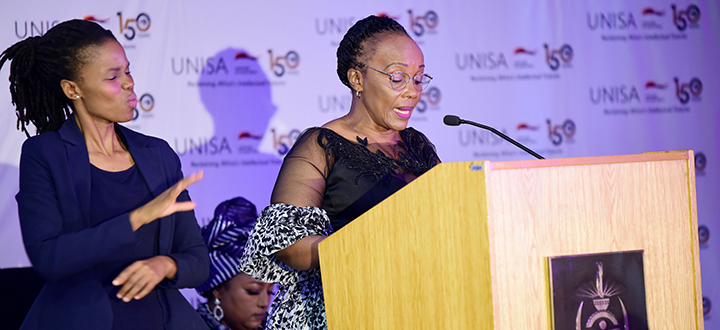 Reflecting on 68 years of women's progress
Reflecting on 68 years of women's progress
 "Designing clean water storage systems is deeply personal to me"
"Designing clean water storage systems is deeply personal to me"
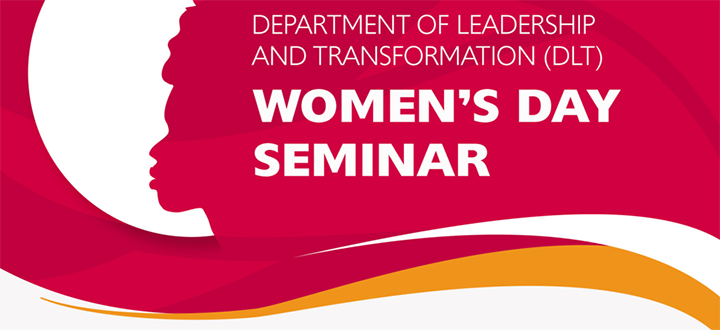 Discourses on black women leadership in the South African academy
Discourses on black women leadership in the South African academy
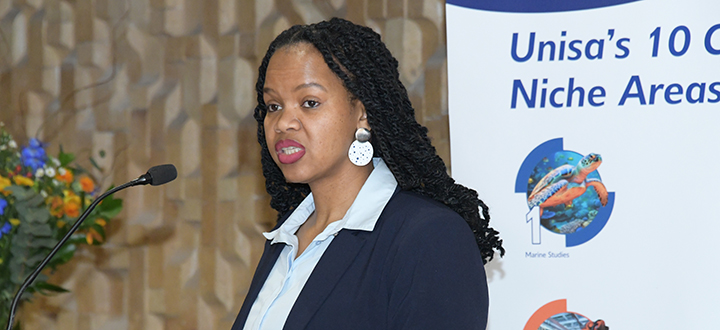 Day two of CNA Research Symposium focuses on aviation, aeronautics and strategic funding
Day two of CNA Research Symposium focuses on aviation, aeronautics and strategic funding
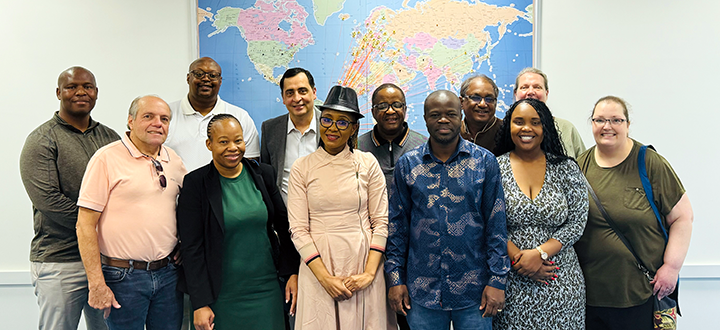 Unisa sets out to strengthen BRICS partnerships with Brazilian universities
Unisa sets out to strengthen BRICS partnerships with Brazilian universities